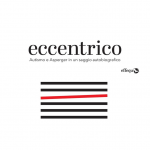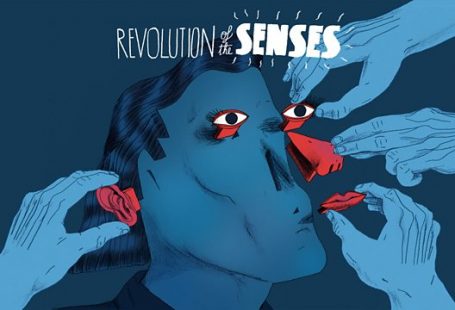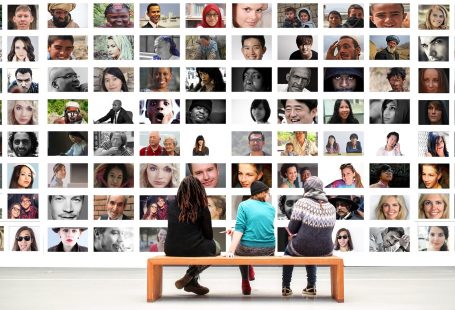Finally, on November 15th, my new book comes out:
Eccentrico, an autobiographical essay on autism and Asperger’s syndrome.
Which, according to the DSM-5 and the very recent ICD-11, are now the same thing: autism spectrum disorders.

I insist on the fact that the word ‘disorder‘ still suggests something that needs to be fixed. Those who know me, also know that I can’t be accused of being ‘politically correct’. It’s just a matter of coherence, since we all now agree that autism is not a disease but a different cognitive style; it’s is about opening one’s mind, and after understanding that the human beings can express their sexuality in so many ways, finally we also realized that we can express our cognitive and perceptive abilities in different ways. It doesn’t sound so difficult.
However, the stigma remains, especially for those on the autistic spectrum who have less ability to interact with the outside world or have compromised cognitive abilities. So, as far as I am concerned, I will use the word condition, referring precisely to the Autism Spectrum Conditions
Eccentrico started as a personal diary. I began writing it shortly after my diagnosis of Asperger’s syndrome (well, of autism spectrum condition…) basically to rearrange my thoughts because seeing them on paper helps me to rearrange them. Then, over time, talking to acquaintances and friends or looking at documentaries and TV programs (always on my laptop, because I still don’t want any TV at home …), I realized that there is so much confusion about autism. Too much confusion.
Apart from the usual, old stereotypes, misinformation doesn’t only affects the public, but also – unfortunately – psychologists, psychiatrists, therapists and families of autistic people. And the more time passed, the more I realized that the so-called ‘high functioning’ autism and Asperger’s syndrome (whose diagnoses differ only in one detail: Asperger’s has no delay in language development) were as well victims of prejudices as more severe autists.
It is true: sometimes it’s not so easy to distinguish an Aspie from a non-Aspie (at least until the autistic cliché remains Dustin Hoffman counting the toothpicks fallen on the ground or rocking obsessively on a chair). It is the high-functioning side, in the asperger, which deceives; it is the ability to blend in, to try to adapt to the normality that society, sometimes involuntarily and superficially, imposes on anyone who is different.
“You can’t see it“, or: “Come on, you cannot be autistic” and again: “Yes, but I also do the same thing … would that make me autistic too?“. I’ve heard so many such phrases; I’ve talked to a lot of people who think that Asperger’s is nonsense, an invention of the infamous, bad pharma always plotting behind our backs, making up diseases just to sell a few extra tablets. And yes, maybe it happens sometimes, but here we are talking about something totally different, a condition in which the brain has been proved to be structured differently, in which the world is perceived in another way than the majority of people.
So, without even noticing, the personal diary I was writing, that sort of map I wanted to use to rearrange my thoughts after my diagnosis of autism, has turned into an autobiographical essay. All the autobiographical anecdotes have become ideas, tips to explain a specific characteristic of the autistic condition to the public. I’ve also tried to provide my explanations with a solid scientific basis ’cause I fear those people who talk about such delicate issues without the necessary competence and background. Such serious thing as a neurological condition that today involves one in of 59 children, according to the latest statistics.
If you are interested in understanding autism, especially the ‘high functioning‘ and the (no longer existing) Asperger syndrome; if you want to understand how we live this condition from within, what an Aspie thinks, what could hurt or make her happy, how to avoid starting a meltdown, then from November 15 you can buy Eccentrico.
Of course, if you speak Italian…
Writing this essay was for me the beginning of a mission: to sensitize as many people as possible on the need to accept differences like neurodiversity as normal. And, especially in such a delicate historical moment in which public figures and politicians superficially, and for mere personal interests, put at risk the whole society and the foundations of democracy sabotaging our culture, it is essential to make our voice heard. All our voices.
We must understand. To tolerate, honestly, is not enough.




